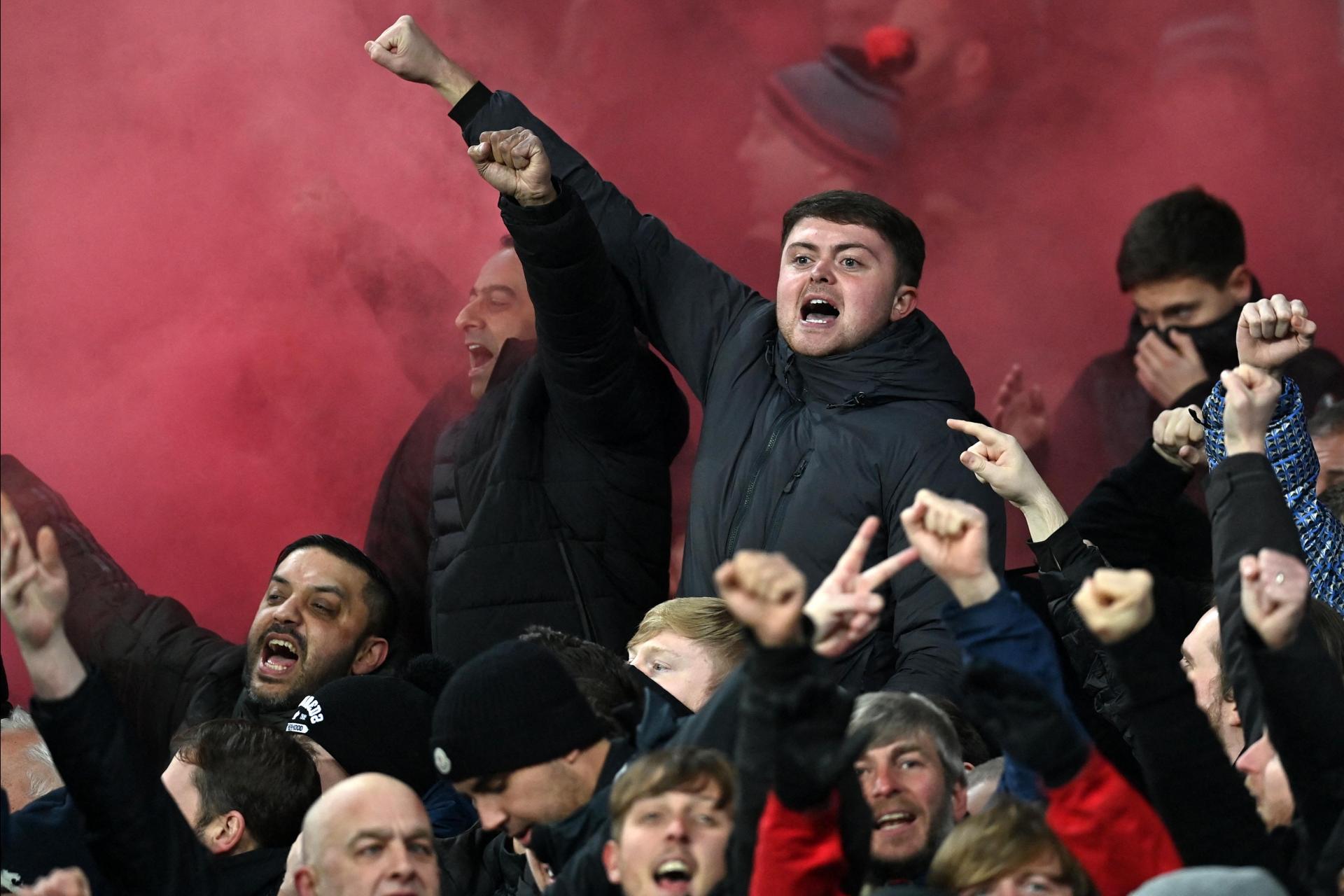Premier League fans will be subject to vaccine passport checks to enter stadiums from Wednesday, but fears are rising over how long the English top-flight can continue in front of capacity crowds as the Omicron variant sweeps across Britain.
Tottenham’s trip to Brighton and Manchester United’s visit to Brentford has been postponed due to outbreaks in the Spurs and United camps in recent days.
Aston Villa, Leicester and Norwich have also reported positives as part of a record 42 cases of Covid-19 among Premier League players and staff in the past week.
That figure is the highest since testing began in May 2020 when top-flight football in England returned after a three-month delay caused by the pandemic.
For over a year the action continued on the field in front of empty stands until a loosening of restrictions allowed the Premier League to return to capacity crowds in August.
There were no restrictions for supporters at most stadiums, although Brighton, Chelsea and Tottenham did introduce the mandatory checks for vaccination or proof of a negative test that will now be deployed across England for crowds of over 10,000.
The spectre of Covid loomed in the background even as tens of thousands of unmasked fans mixed in close quarters to watch Steven Gerrard’s return to Liverpool as Aston Villa manager on Saturday.
A pop-up testing centre offered free lateral flow tests to the passing crowds.
Newly deployed “Covid stewards” were positioned around Anfield to offer advice on how to download vaccination status onto a smartphone in preparation for Thursday’s first match under the new rules against Newcastle.
Liverpool fans have already been affected by problems with the club’s new e-ticketing system that saw long queues to get into the stadium in the early weeks of the season.
Premier League clubs are scrambling to get extra staff for checks, but delays are expected.
“It is going to be another shambles,” said Richard Walker, a 55-year-old Liverpool fan. “A lot of older people don’t have the latest phone or know how to work it.
“It’s the middle of winter and now we’ll be standing in queues for ages waiting to get in.”
‘Small sacrifice’
Many other fans were more supportive of the measure as long as it keeps the doors open during a busy festive calendar of games.
“It’s a small sacrifice compared to being shut out,” said Lucas Brownley, 33, who regularly travels from London to Liverpool for home games.
“Older people might struggle with the technology, but they are the ones that need most protecting. It is for their sake.”
The Football Supporters Association (FSA) has backed the vaccine passport in a bid to avoid the return to sport behind closed doors as has already happened for major matches in Austria, Germany and the Netherlands.
“From the earliest days of the pandemic we have always said that supporters should follow the expert advice of medical professionals and scientists,” FSA chair Malcolm Clarke told AFP.
“If those experts feel that public health is best served by the introduction of vaccine passports or lateral flow tests for all large outdoor events, then we accept that requirement.”
In announcing the strengthening of measures against the virus last week, British Prime Minister Boris Johnson said the vaccine passport would “keep these events and venues open at full capacity”.
It would also give those who attend confidence they have minimised the risk to others and themselves, he added.
But Johnson is facing anger from his own MPs — and a significant rebellion — about their introduction, with many seeing them as an unnecessary curb on public freedoms.
For now, the show goes on with nine of the 10 Premier League matches scheduled for Tuesday, Wednesday and Thursday still going ahead in front of full crowds.
